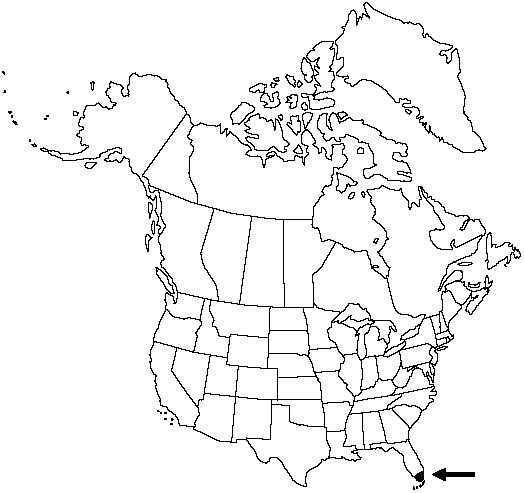Difference between revisions of "Campyloneurum costatum"
Tent. Pterid. 190, plate 7. 1836.
FNA>Volume Importer |
imported>Volume Importer |
||
| (2 intermediate revisions by 2 users not shown) | |||
| Line 51: | Line 51: | ||
|publication year=1836 | |publication year=1836 | ||
|special status= | |special status= | ||
| − | |source xml=https:// | + | |source xml=https://bitbucket.org/aafc-mbb/fna-data-curation/src/2e0870ddd59836b60bcf96646a41e87ea5a5943a/coarse_grained_fna_xml/V2/V2_736.xml |
|genus=Campyloneurum | |genus=Campyloneurum | ||
|species=Campyloneurum costatum | |species=Campyloneurum costatum | ||
Latest revision as of 20:25, 5 November 2020
Stems short-creeping, 2–5 mm diam. Leaves few, arching to pendent, stiff. Petiole 4–15 cm. Blade dark green, linear-elliptic or linear-oblanceolate, 20–40 × 2.5–6 cm, leathery; base acuminate; margins shallowly sinuate to undulate; apex abruptly caudate-acuminate. Veins obscure, primary veins obscure, slightly to strongly curved, areoles in 4–8 series between costa and margin, with usually 2 free included veinlets per areole. Sori in 1–several rows on each side of costa. 2n = 74.
Habitat: Epiphytic in swamps, on various rough-barked trees, substrate subacid
Elevation: 0 m
Distribution

Fla., West Indies, Central America, South America in Venezuela, Colombia, Ecuador.
Discussion
In the flora Campyloneurum costatum is currently known only from Collier County, Florida. It had formerly been reported from Dade County, where it now may have been extirpated.
Selected References
None.